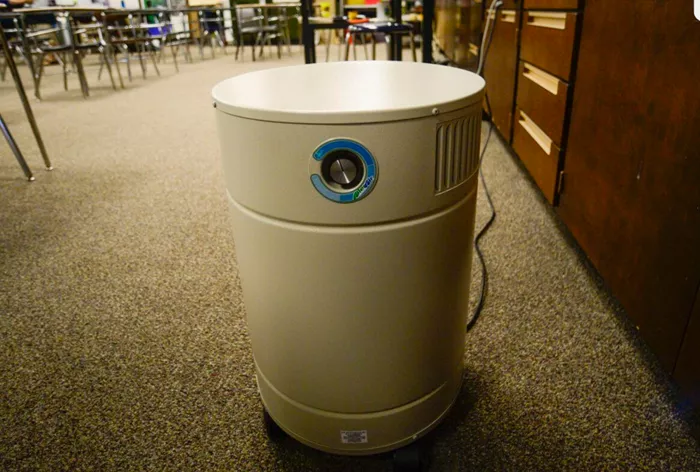Superintendent Andrew Haas has alerted the Windham Northeast Supervisory Union Board about escalating PCB levels in Bellows Falls Union High School’s gym, sparked by recent hot weather. The PCB readings near the gym have surged to nearly 500 nanoparts per cubic meter, surpassing the actionable threshold of 300 nanoparts per cubic meter. Last year, levels peaked close to 900 nanoparts per cubic meter, making the gym a significant hotspot.
During an update, Haas indicated that addressing the issue may necessitate replacing the roof decking, estimated to cost between $500,000 and $1 million. This approach is deemed more cost-effective than removing the PCB-laden fireproofing material, which could compromise the structural integrity of the decking if sandblasted.
The Vermont Department of Health has yet to determine whether the gym can safely reopen when school resumes in August. Haas emphasized preparations for the worst-case scenario, potentially barring access to the gym and locker rooms until remedial actions are completed.
While acknowledging reduced health risks during summer when the school is unoccupied, Haas attributed the spike in PCB levels to the heat, describing PCBs as “grasshopper” chemicals that emerge in warmer temperatures. He anticipates expedited testing after the HVAC system becomes operational in early August.
Bellows Falls Union High School has been grappling with the PCB issue for nearly a year, utilizing carbon filtration units to mitigate contamination while environmental officials investigate its source and effective cleanup methods. Principal Kelly O’Ryan has begun contingency planning, including relocating the weight room to a vacant shop area.
Despite the challenges, Haas shared positive developments, noting that a pilot study found no leaching of PCBs into surrounding cement blocks from fire retardants sprayed on the school’s framework. Additionally, a new $5 million HVAC system, largely funded by federal pandemic relief funds, is nearing completion and expected to alleviate environmental and health concerns.
The school community remains hopeful that the new HVAC system will sufficiently lower PCB levels, facilitating the safe reopening of facilities crucial for student activities and education.
[inline_related_posts title=”You Might Be Interested In” title_align=”left” style=”list” number=”6″ align=”none” ids=”10943,10940,10926″ by=”categories” orderby=”rand” order=”DESC” hide_thumb=”no” thumb_right=”no” views=”no” date=”yes” grid_columns=”2″ post_type=”” tax=””]

































